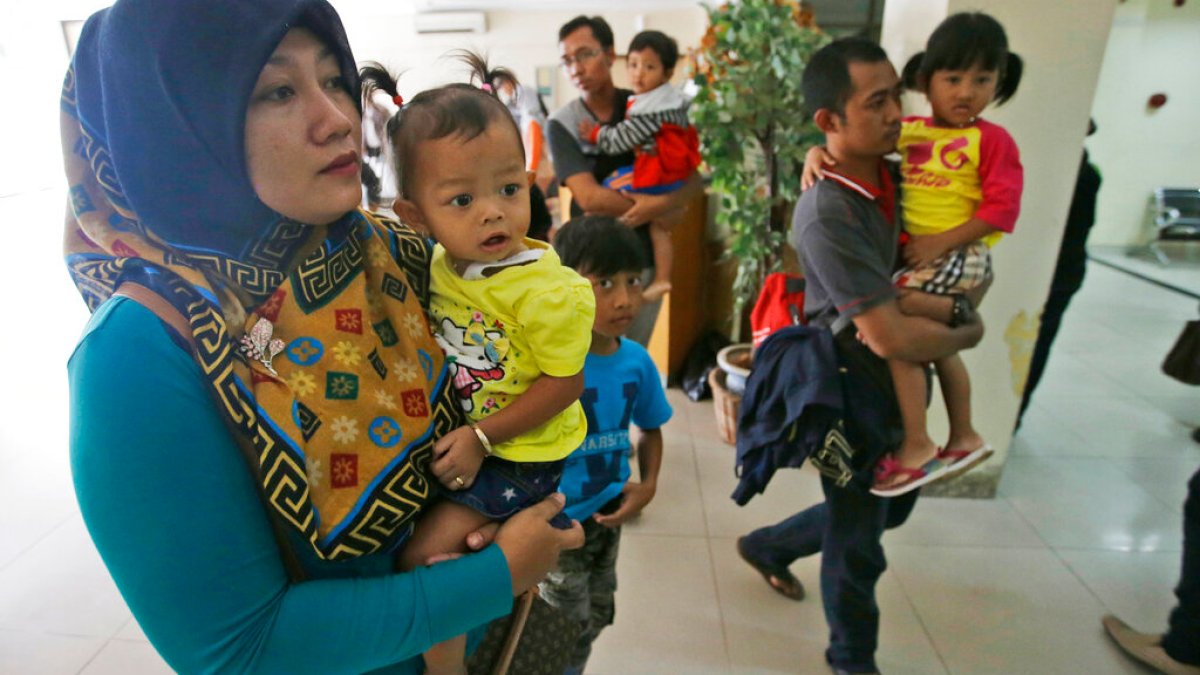Ban comes as health authorities probe an unexplained rise this year in children’s deaths from acute kidney injury.
The Indonesian government has announced a ban on all syrup and liquid medicine prescription and over-the-counter sales following the deaths of nearly 100 children from acute kidney injury this year.
The ban announced on Wednesday comes as the Southeast Asian country’s health authorities probe an unexplained rise since January in the number of children’s deaths from acute kidney injury (AKI).
“Until today, we have received 206 reported cases from 20 provinces with 99 deaths,” the health ministry’s spokesperson Muhammad Syahril Mansyur told a press briefing.
“As a precaution, the ministry has asked all health workers in health facilities not to prescribe liquid medicine or syrup temporarily … we also asked drug stores to temporarily stop non-prescription liquid medicine or syrup sales until the investigation is completed,” he said.
The rise in childhood AKI fatalities in Indonesia comes as The Gambia’s government probes the death of 70 children from AKI linked to paracetamol syrups used to treat fever, which contained excessive levels of diethylene glycol and ethylene glycol, in a scandal linked to four Indian-made cough syrups.
Officials at Indonesia’s food and drug agency said those products identified in The Gambia were not available locally and the ingredients they were comprised of had now been banned from all child medicinal syrups sold in the country.
The rise in Indonesia’s cases of AKI began in January this year, and accelerated further since late August, Mansyur said, adding that a probe was launched last week.
“Since late August 2022, the ministry and the paediatrician association have received increasing reports of acute kidney injury. The jump is sharp,” he said, noting that 65 percent of cases had been treated in Jakarta.
Most of the cases involved children aged under 18, mainly toddlers under five years old, the ministry said.
Before the recent rise, the ministry typically saw one or two cases of AKI a month.
The ministry has purchased specialist medicines for AKI to address the spike, Mansyur said, while an investigation into the cause continues.
Indonesia has also formed an expert team to look into the AKI spike among children, comprised of local health and paediatrics officials and World Health Organization (WHO) representatives.
WHO experts investigating cases in The Gambia were also being consulted.
A health ministry letter dated October 18, and seen by Reuters, requested hospitals collect all medicines that families had given to those children admitted with AKI, so toxicology tests could be conducted. Chemists should halt the sale of syrup-based medicine until further notice, the letter stated.
Chairman of the Indonesian Paediatrician Association (IDAI) Piprim Basarah Yanuarso told Indonesia’s Tempo news organisation on Wednesday that there had been 192 cases of chronic kidney disease since January, with the children affected ranging in age from one to five years old.
IDAI Logs 192 Cases of Unknown Chronic Kidney Disease in 20 Provinces https://t.co/3YYUM01GuV #TempoEnglish
— Tempo English (@tempo_english) October 18, 2022
The IDAI and the ministry of health are working to identify the cause of the spike in cases, Piprim said, noting that the consumption of medicine containing ethylene glycol is being investigated.
“We are examining this,” he said, according to Tempo.
